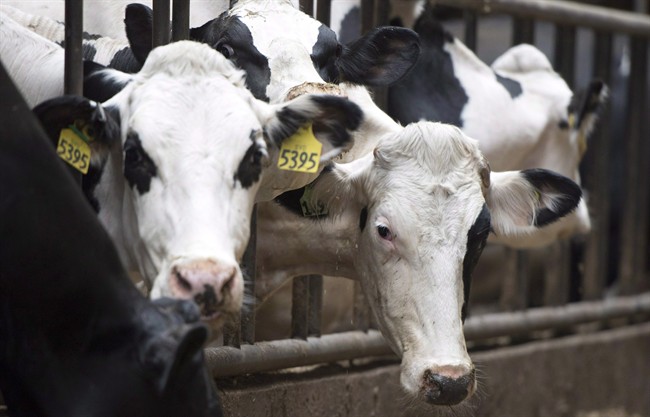Tests currently underway at the University of Saskatchewan (U of S) aim to find out if Camelina meal can be used as feedstock for dairy animals to produce milk with healthy Omega-3 type nutrients.

The two tests will assess the impact of Camelina meal on eight Holsteins to determine the impact on milk production output, taste, and fatty acid content in milk.
“Can you imagine a day when all our eggs produced in Canada are healthier with high Omega-3 content?” said Rex Newkirk, chair of food processing technology at the Department of Animal Science and Poultry at the U of S.

Get daily National news
“It could be the same thing with milk.”
READ MORE: Full-fat whole milk better for you than low-fat skim, studies show
Five tonnes of Camelina meal is being supplied for the tests by Saskatoon-based Smart Earth Seeds.
“Camelina is a high quality non-GMO source of protein, omega rich oils and high levels of vitamin E,” said Jack Grushcow, CEO of Smart Earth Seeds.
“Our goal is to get local markets to take advantage of these Camelina benefits so we can build local processing infrastructure and deliver benefits to our rural communities.”
Recent tests in Europe found concentrations of polyunsaturated fatty acids, Omega-type fatty acids, and conjugated linoleic acid (CLA) rose significantly in milk from animals that were fed Camelina meal.
This can produce softer butter and may convey potential anti-cancer properties.
READ MORE: 40% of Canadians not getting enough Omega-3: why does it matter for your heart?
Camelina has been approved to use in broiler chickens and approval is expected soon for the inclusion of Camelina rations for hens in the egg industry.
Results of the four-month long feeding trials will be peer-reviewed and then submitted to the Canadian Food Inspection Agency.


Comments